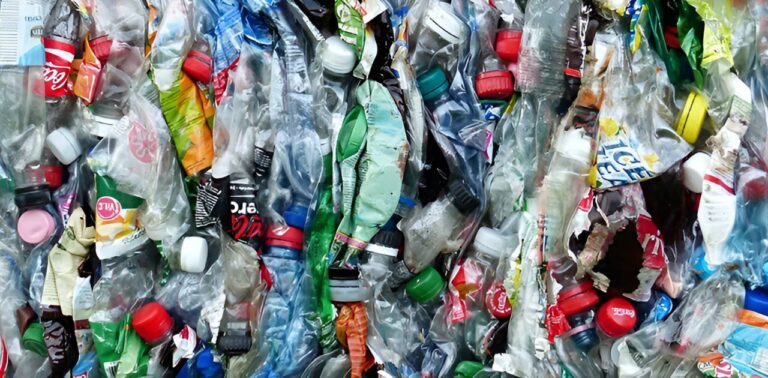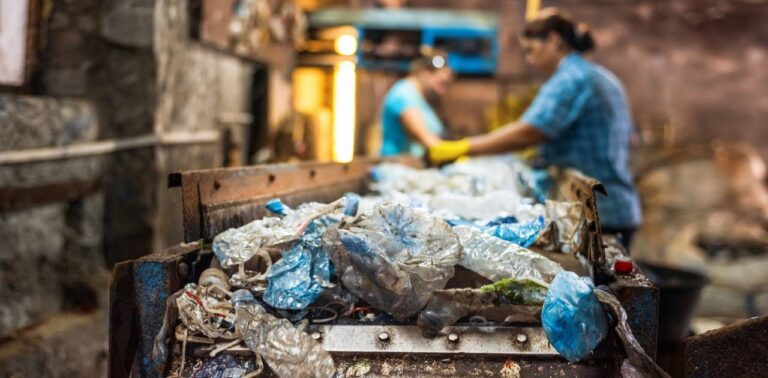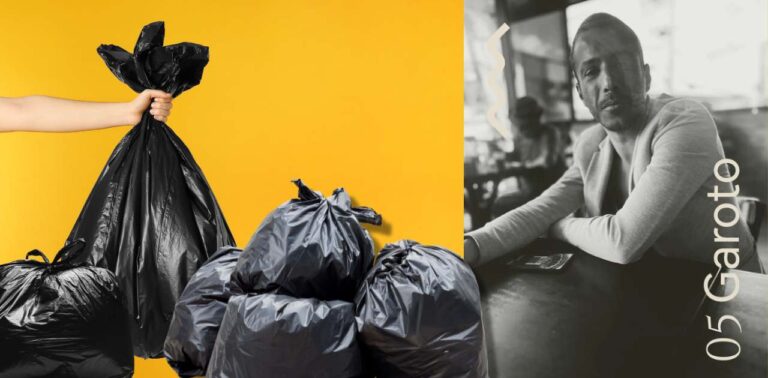Imagine if building your own home could be as simple and fun as playing with blocks. This idea is becoming a reality thanks to recycled plastic bricks, which are transforming the way we think about construction and sustainability. With growing concern for the environment, recycling plastics into building materials is a promising innovation that could have a major impact on the future of cities.

What Are Recycled Plastic Bricks?
Ecomat recycled plastic bricks are 100% industrial building blocks that are made from recycled plastic. These bricks, which resemble children’s building blocks like Lego, are lightweight, colorful and incredibly strong. The concept behind these bricks is simple: to make building easier, faster and, above all, more sustainable. The process of fitting the bricks together is as intuitive as playing with Lego, but with the added benefit of contributing to recycling and protecting the environment.
Each recycled plastic brick measures 33 centimeters long by 25 centimeters high, allowing for the construction of structures in a practical and efficient way. In addition to being lightweight, these bricks eliminate the need for conventional materials such as metal beams and cement, which significantly reduces the cost and environmental impact of construction. As a result, pollutant emissions are drastically reduced, making construction with recycled bricks an environmentally friendly option.
Benefits of Recycled Plastic Bricks
Recycled plastic bricks are not only an innovative solution for the construction industry, but they also offer a number of benefits that make them an attractive choice for architects, engineers and builders. Firstly, these bricks provide excellent thermal and acoustic insulation, which contributes to the comfort of residents. In addition, they offer protection against seismic shocks, increasing the safety of buildings in earthquake-prone regions.
Another significant benefit of recycled plastic bricks is the reduction in the need for transportation and complex industrial processes. Since these bricks are lightweight and easy to handle, transportation logistics are simplified, resulting in lower fuel consumption and lower greenhouse gas emissions. This makes recycled bricks a more sustainable alternative to traditional building materials.
Furthermore, the production of these bricks directly contributes to plastic recycling, one of the biggest environmental challenges of our time. By using plastic waste as raw material, recycled bricks help reduce the amount of plastic that ends up in landfills and oceans, contributing to the preservation of the environment.
The Importance of Recycling in Sustainable Construction
Recycling plays a crucial role in sustainable construction. Using recycled materials, such as recycled plastic bricks, is an effective way to minimize the environmental impact of the construction industry, which is one of the most resource-intensive and waste-generating industries. Incorporating recycled materials into construction projects not only reduces the demand for virgin raw materials, but also promotes the circular economy, where waste is reintegrated into the production cycle.
In addition to being a sustainable practice, recycling plastics into construction materials can also generate new economic and social opportunities. The manufacture of recycled plastic bricks, for example, can create jobs in areas such as waste collection, sorting and processing, as well as drive the development of innovative and sustainable technologies.
Recycled Plastic Bricks: A Global Solution
The potential of recycled plastic bricks extends beyond national borders. With increasing urbanization and demand for affordable and sustainable housing, this innovation could be adopted on a large scale across the world. Developing countries, in particular, could benefit greatly from this technology by using it to build low-cost housing while addressing the challenges of improper plastic disposal.
However, the global implementation of recycled plastic bricks requires collaboration between governments, industries and civil society. Public policies that encourage recycling and the use of recycled materials in construction, as well as raising public awareness about the benefits of these products, are essential for the success of this initiative.
Exploring the Future of Recycled Plastic Bricks
The popularity of recycled plastic bricks is growing as more people and businesses recognize their benefits. Companies like Ecomat are leading the way in this sustainable revolution, producing high-quality bricks that are not only easy to use, but also help combat the global plastic waste crisis.
For those interested in learning more about this innovation, there is a wide range of resources available, from videos and interviews with experts such as Danny Smile Wahab, Creative Director at Ecomat, to case studies on successful projects that have used recycled plastic bricks.
Watch the video:
Contribute to a Sustainable Future
Recycled plastic bricks represent an important step towards a more sustainable future, where construction and environmental protection go hand in hand. By choosing recycled materials and supporting recycling practices, we can all contribute to preserving the environment and building a better world for future generations.
When considering building or renovating a property, consider using recycled plastic bricks. In addition to being an environmentally friendly option, these bricks offer durability, safety, and comfort, all with a significantly reduced environmental impact. Sustainability in construction starts with conscious choices, and recycled plastic bricks are one of those choices that can make all the difference.
Check out other interesting facts about recycling clicking here.
Learn how to make art by recycling, Click here.




Hello, where can I find the product to buy?
This product is Italian. Contact us via the website http://www.ecomatresearch.com/Ecomat.html
I AM A BUILDER AND I WOULD LIKE TO SEE (.BUY|) 10 UNITS TO ANALYZE THEIR FEASIBILITIES. HOW OR WHERE CAN I BUY?
Lucio, this product is Italian. Contact us through the website http://www.ecomatresearch.com/Ecomat.html
If you actually go ahead with the tests, I would really like to hear the results. Cheers!
WE WORK IN THE CONSTRUCTION AREA, I AM INTERESTED IN WORKING WITH THIS TYPE OF MATERIAL.
WOULD IT BE POSSIBLE TO MANUFACTURE 1000 X 330 X 70 MM PLATES?